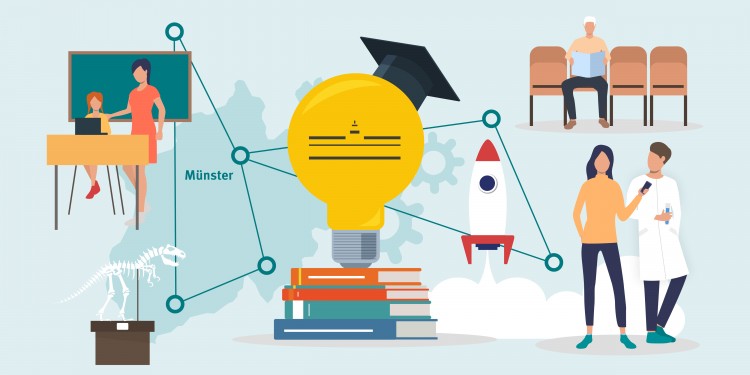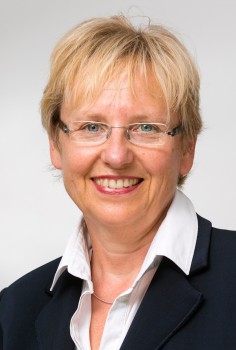
“Transfer is not something you do in your spare time”
Knowledge transfer at German universities has been becoming increasingly important for some years now and, more and more, is being recognized as an academic achievement. The transfer of the results of research to society as a whole takes place in a wide variety of different ways, and the process should be seen as a dialogue. Kathrin Nolte spoke to Dr. Annette Barkhaus, deputy head of the Research Department at the German Council of Science and Humanities (Wissenschaftsrat), about the challenges of knowledge transfer for German universities and research institutes.
In 2016 the Council of Science and Humanities published a policy paper entitled “Knowledge and Technology Transfer as a Part of Institutional Strategies”. What do you understand by the term “transfer”?

In your preface three years ago you already noted that the transfer of knowledge to society in general, as well as to the fields of culture, business and politics, had become a greater focus of attention as far as science policy is concerned. What status does knowledge transfer have today at German universities?
As regards both social policy and science policy, its status has increased noticeably since 2016, and personally I expect it to continue to increase in future for two reasons: firstly, there is the need to tackle challenges in our society and to generate knowledge as the basis for innovation. And the second reason – which began to emerge in 2016 – is the diagnosis that democracy is becoming more fragile. In this context, the academic world has a responsibility not only to prepare the ground for members of the public to make informed decisions, but also to help build trust in academic work. This is easily said, but in practice it is a challenge today – look, for example, at how “sceptical of experts” some people now are.
How can universities and research institutes meet this challenge?
Universities and research institutes have already made great efforts to take transfer seriously as a dimension of academic work. Transfer is an integral part of academic and scientific work and not just something you do in your spare time. There is currently a change taking place in the academic world: transfer work is increasingly being recognized as an academic achievement and, as such, it can have a positive impact on reputation – although the work undertaken by researchers with respect to knowledge transfer, as well as dialogue with various players in society, means that time and resources have to be found which are then no longer available for research work itself.
What are the challenges being faced by research institutes as they exercise their responsibility to society?
One of the challenges for universities and research institutes is to draw up a coherent transfer strategy for the entire entity – precisely in the case of a university such as Münster, which offers the full range of subjects. Such a strategy cannot be imposed on such an institution from above. Rather, the respective potentials should be recognized and concrete measures for implementation drawn up. It is the Council’s view that research, transfer and teaching should interact with one another. It is precisely at times when, as I just mentioned, democracy is becoming more fragile that there is a further challenge: agreeing on rules for good transfer practice in various activities such as science communication, advisory services and application. These rules are needed in order to strengthen people’s trust in science. Here, questions of transparency – for example, relating to research funding – play an important role. For junior researchers it should go without saying that, even at this early stage in their careers, they undertake transfer and, in doing so, achieve academic recognition – which is also a challenge. Here in Germany we have some catching-up to do. At universities in the USA and Asia, transfer activities are a part of the portfolio and have a positive effect on reputations and careers.
What do you recommend should be done to meet growing expectations? How should institutions and individual researchers embed transfer activities in their work?
Our recommendation is: draw up and implement a strategy and create support structures for researchers! Every university, every research institute – and each and every researcher too – should look to find their own individual pathway on the basis of their own potential. Not every single research project has a transfer potential. The Council’s position is, rather, that each institution should draw up its own strategy, that the responsibility for transfer should be located at management level, and that transfer activities should be promoted differently according to the subject, the potential and the research entity. This requires support structures and resources – both centralised and decentralised. Creating these and making them available is the responsibility of management.
Source: “wissen|leben” No. 1, February / March 2020
